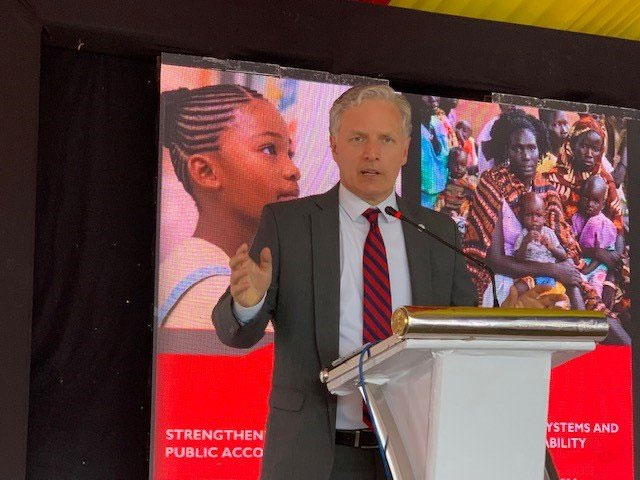
Kampala, Uganda | THE INDEPENDENT | The United States Agency for International Development-(USAID) has raised concern over corruption in the country, saying that if the vice isn’t fought, the long anticipated oil money may not benefit the country.
Richard Nelson, the USAID Country Director told a meeting organized by the Inspectorate of Government-IG to update development partners on anti-corruption strategies, that as Uganda nears production of oil, the country should address the corruption vice or else proceeds from oil might be lost to corruption.
This year, TotalEnergies and partner China National Offshore Oil Corporation reached a deal with Uganda and Tanzania to invest more than 10 billion dollars in developing crude oil production in East Africa.
Uganda expects to produce 230,000 barrels of oil per pay for more than ten years and attract revenue of more than 2 billion dollars a year which is more than 7.3 trillion Shillings.
However, according to the IG, the country loses over 20 trillion Shillings a year to corruption. It is for this reason that Richard says that unless corruption is fought, Uganda would be earning from one end while losing a substantive amount of money from another side, something that could hinder development.
Nelson says that although there has been no study indicating that oil money could be lost to corruption, the trend in several oil producing countries has been that oil money is embezzled at the cost of the country.
Nelson hence noted that Uganda needs to not only invest in money making projects but also in building the integrity of the people because the corruption index clearly shows how much the country loses to corruption.
The Inspector General of Government, Beti Kamya in her response said that it is important to invest in transparency and ensure proper accountability so as to guard Uganda’s resources and funds from being mismanaged.
Kamya says that the fight against corruption should be a collective effort where the citizens report any cases of corruption to authorities to subject them to the long arm of the law. The IG recently launched a lifestyle audit, a model of fighting corruption which involves comparing a person’s earnings to their known wealth. If one’s wealth is far beyond their earnings, then they are investigated and caused to return funds or other assets they would have earned through corruption tendencies.
Kamya is optimistic that when Uganda saves the 20 trillion Shillings lost to corruption, there shall be enough money to be given to parishes to establish infrastructure and capitalize people’s businesses.
As the IG seeks to enhance efforts to fight corruption and recover assets acquire by especially government officials through stealing from government, the Inspectorate says their hands are partly tied by the law which doesn’t allow them to recover assets until court decides so.
According to Patricia Achan Okiria, the Second Deputy Inspector General of the Inspectorate, Uganda has not yet finalized the process for a non-conviction based assets recovery system. She says the Inspectorate is working with the Ministry of Justice and Constitutional Affairs to have the current assets recovery law to provide for recovery before conviction and before court issues an order permitting recovery.
However, Joyce Ngaiza from British High Commission advised the Inspectorate to work with the Chief Justice to make a secular allowing for non-conviction asset recovery. She says that waiting on politicians to make amendments to the law might take long and cause more lose to the country.
*****
URN
 The Independent Uganda: You get the Truth we Pay the Price
The Independent Uganda: You get the Truth we Pay the Price


